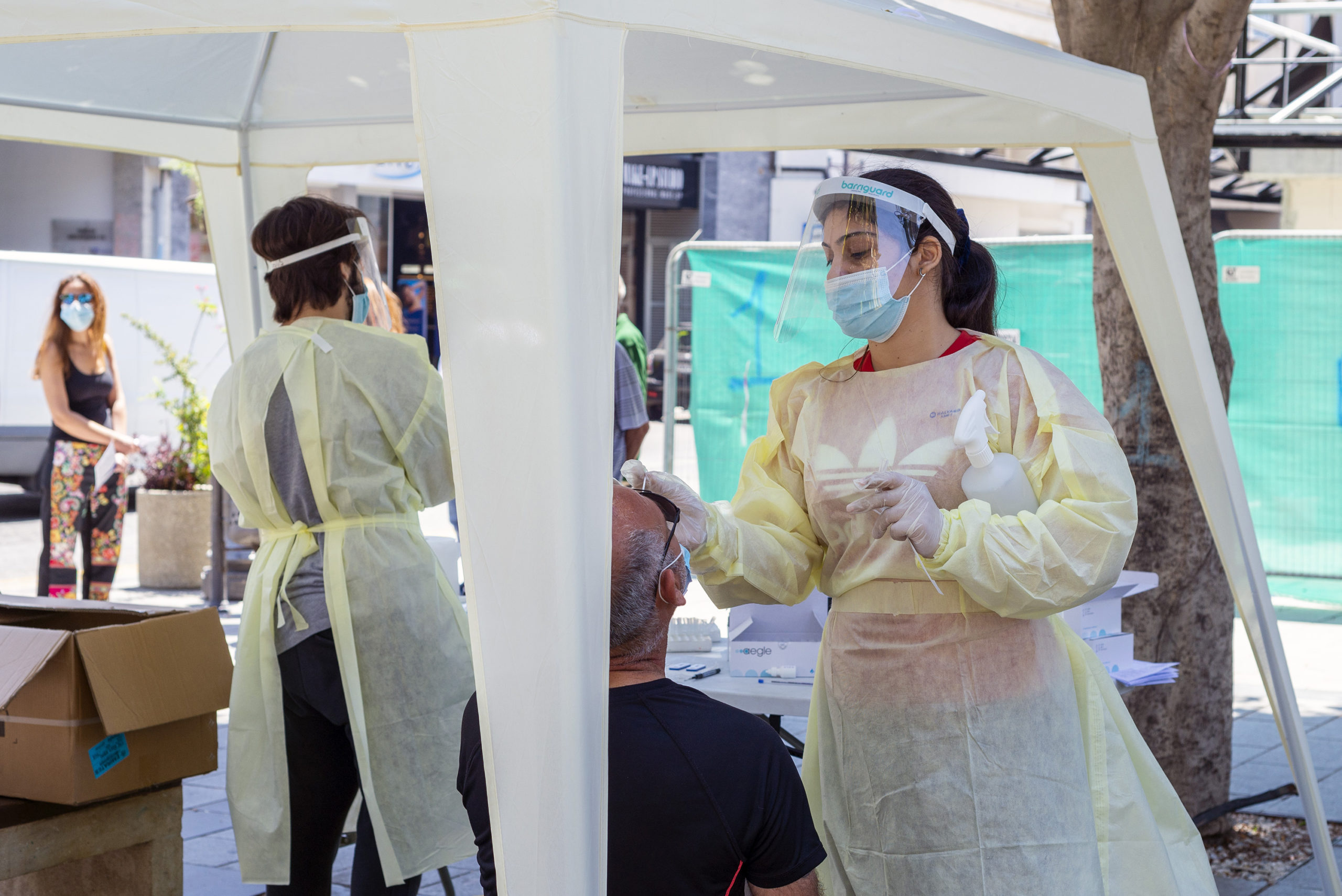Cyprus identified 63 new cases of the coronavirus Omicron variant, half of which were airport arrivals.
This follows the 33 discovered earlier this month, with 25 linked to students from a Limassol technical school returning from the U.K., while a further eight were reported to have travelled to other destinations in recent weeks.
The health ministry said that 59 of the new Omicron variant (B.1.1.529) were confirmed from among 192 samples of Covid-19 cases re-tested from December 11 to 19 by the NIPD lab and data from the University of Cyprus Laboratory of Molecular Virology.
A further four were identified from samples taken at the airports and tested at the Cyprus Institute of Neurology and Genetics (CING).
Of the 192 samples, 80 were taken at the airports, nine were from the Eden rehabilitation centre in Tersefanou and 103 were samples collected from local society.
Meanwhile, a leading epidemiologist said earlier in the week that the more transmissible coronavirus variant Omicron could push Cyprus’ daily COVID-19 cases up to 2,000.
Dr Michalis Voniatis told the Cyprus News Agency, that the rise in infections over the past ten days, close to 900, appears to be linked to Omicron.
He noted that the verdict is still out on the link between an increase of cases and the arrival of Omicron, as scientists are waiting for the sequencing results of some 100 cases to have a clearer picture.
Voniatis did say that Omicron is rapidly spreading in the community.
“The key question is the severity of Omicron, but regardless of whether it is milder compared to Delta, people must get tested, especially during Christmas gatherings.
“We will see a rise in infections, but the question is how many of those will require treatment.
“Unfortunately, we’ve witnessed illness even among the vaccinated.”
He urged people to get a booster shot, citing studies that showed a third dose of a COVID-19 vaccine bolsters the immune system against Omicron.
A study in South Africa found that the risk of hospitalisation from Omicron was roughly 80% lower than that of the Delta variant.
For those who end up in hospital, the risk of severe disease was roughly 30% lower.
Another research published by London’s Imperial College said the risk of needing to stay in hospital for patients with Omicron is 40-45% lower than patients with the Delta variant.
The epidemiologist in November had suggested that if Omicron proved to cause milder disease, it could well bring about the end of the pandemic.
“What seems to be rather certain is that it is transmitted much more easily, and this is worrying because it will spread to all countries,” Voniatis said.










